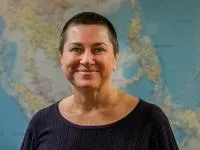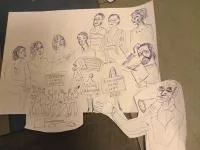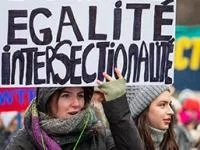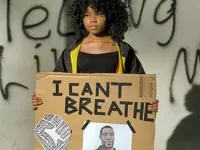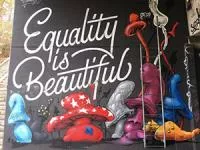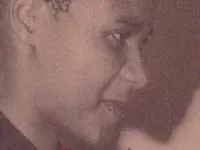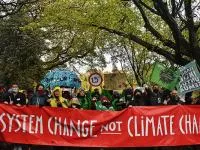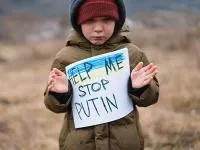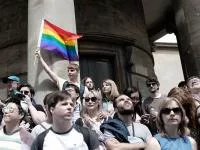GD 12.3 - December 2022
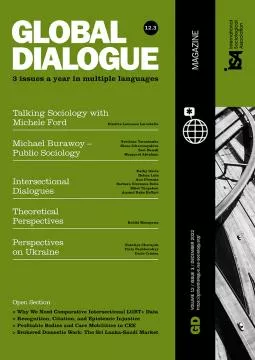
Global Dialogue is available in multiple languages!
Select the language to download the issue.
Editors:
Brigitte Aulenbacher, Klaus Dörre.
Assistant Editors:
Raphael Deindl, Johanna Grubner, Walid Ibrahim.
Associate Editor:
Christopher Evans.
Managing Editors:
Lola Busuttil, August Bagà.
Consultants:
Michael Burawoy.
Media Consultant:
Juan Lejárraga.
Consulting Editors:
Sari Hanafi, Geoffrey Pleyers, Filomin Gutierrez, Eloísa Martín, Sawako Shirahase, Izabela Barlinska, Tova Benski, Chih-Jou Jay Chen, Jan Fritz, Koichi Hasegawa, Hiroshi Ishida, Grace Khunou, Allison Loconto, Susan McDaniel, Elina Oinas, Laura Oso Casas, Bandana Purkayastha, Rhoda Reddock, Mounir Saidani, Ayse Saktanber, Celi Scalon, Nazanin Shahrokni.
REGIONAL EDITORS
Arab World: (Tunisia) Mounir Saidani, Fatima Radhouani, (Lebanon) Sari Hanafi.
Argentina: Magdalena Lemus, Juan Parcio, Dante Marchissio.
Bangladesh: Habibul Khondker, Khairul Chowdhury, Fatema Rezina Iqbal, Mumita Tanjeela, Mohammad Jasim Uddin, Bijoy Krishna Banik, Sabina Sharmin, Abdur Rashid, Sarker Sohel Rana, Md. Shahidul Islam, A.B.M. Najmus Sakib, Eashrat Jahan Eyemoon, Helal Uddin, Masudur Rahman, Shamsul Arefin, Yasmin Sultana, Syka Parvin, Ruma Parvin, Saleh Al Mamun, Ekramul Kabir Rana, Sharmin Akter Shapla, Md. Shahin Aktar.
Brazil: Fabrício Maciel, Andreza Galli, Ricardo Visser, Gustavo Dias, José Guirado Neto, Jéssica Mazzini Mendes.
France/Spain: Lola Busuttil.
India: Rashmi Jain, Rakesh Rana, Manish Yadav, Pragya Sharma.
Indonesia: Hari Nugroho, Lucia Ratih Kusumadewi, Fina Itriyati, Indera Ratna Irawati Pattinasarany, Benedictus Hari Juliawan, Mohamad Shohibuddin, Dominggus Elcid Li, Antonius Ario Seto Hardjana, Diana Teresa Pakasi, Nurul Aini, Geger Riyanto, Aditya Pradana Setiadi.
Iran: Reyhaneh Javadi, Niayesh Dolati, Sayyed Muhamad Mutallebi, Elham Shushtarizade.
Kazakhstan: Aigul Zabirova, Bayan Smagambet, Adil Rodionov, Almash Tlespayeva, Kuanysh Tel, Almagul Mussina, Aknur Imankul, Madiyar Aldiyarov.
Poland: Urszula Jarecka, Joanna Bednarek, Marta Blaszczyńska, Anna Turner, Aleksandra Biernacka.
Romania: Raluca Popescu, Raisa-Gabriela Zamfirescu, Bianca Mihăilă, Ruxandra Păduraru, Ana-Maria Rențea, Maria Vlasceanu.
Russia: Elena Zdravomyslova, Daria Kholodova.
Taiwan: Wan-Ju Lee, Tao-Yung Lu, Yu-Wen Liao, Po-Shung Hong, Yi-Shuo Huang, Chien-Ying Chien, Zhi Hao Kerk, Mark Yi-wei Lai, Yun-Jou Lin, Yun-Hsuan Chou.
Turkey: Gül Çorbacıoğlu, Irmak Evren.
GD 12.3 - December 2022
Editorial
In this issue, the section ‘Talking Sociology’ features an interview conducted by Dimitra Laurence Larochelle with the most renowned scientist Michele Ford, who provides insights into her consulting activities for the International Labor Organization (ILO), the challenges for sociological researchers, and the difficulties that can be faced by fighting for labor rights.
Our first symposium refers to Michael Burawoy’s most impressive and inspiring body of work. As past president of the ISA and founder of Global Dialogue, he has initiated and influenced a broad debate on public and global sociology. Sari Hanafi, current president of the ISA, Margaret Abraham, past president of the ISA, and Svetlana Yaroshenko and Elena Zdravomyslova reflect on their collaboration with him and on his recent book Public Sociology: Between Utopia and Anti-Utopia and also shed light on public sociology from different perspectives.
The second symposium, organized by the prominent experts Kathy Davis and Helma Lutz shows how the travelling theory and concept of intersectionality is elaborated, re-worked, and deployed in different contexts. This compilation of articles provides an overview over ways in which intersectionality has been influential and how scholars and activists think about inequality, power, and social change, both locally and globally. Ann Phoenix, Barbara Giovanna Bello, Ethel Tungohan, and Amund Rake Hoffart cover a wide range of topics.
In the theoretical section, Koichi Hasegawa reflects on the Fridays for Future movement from a social movement perspective, focusing on cultural framing, resource mobilization, and the structure of political opportunities, and examining why these campaigns have been so successful and why participation was low and slow in Japan compared to other countries.
Our country focus has been written in the face of the war of aggression against Ukraine as witnessed in the summer 2022. Referring to sociological debates on globalization, Nataliya Chernysh considers the role of sociology in the post-globalization phase with regard to this war. Yuriy Pachkovskyy deals with the concrete experience of the invasion, the collective trauma and the consequences to be drawn from the war. Darie Cristea asks about the place of sociology in the face of a “security dilemma” and the rise of anti-system movements and parties.
In the ‘Open Section’ Sait Bayrakdar, Andrew King and Jana Bacevic reflect on the necessary sensitivity for diversity and intersectionality in scientific work, respresentative studies and surveys as well as epistemic questions, while Petra Ezzeddine, Kristine Krause and Wasana Handapangoda investigate different forms of the contemporary transnational marketization of care.
Five years ago, we started our editorship of Global Dialogue knowing that it would be an honor but also a challenge to succeed to its founder and former editor Michael Burawoy. Now that our editorship is coming to an end it is on the readers of Global Dialogue to judge about the work done over the years. Together with our assistant editors Raphael Deindl, Johanna Grubner, Walid Ibrahim and Christine Schickert, who have done a great job in all this time we are very grateful for their wonderful and inspiring collaboration to: the regional editors and their teams from around the world, who indeed made Global Dialogue global and accessible for broad academic and non-academic audiences; managing editors Lola Busuttil and August Bagà as the creative and organizational backbone of the magazine; associate editors Aparna Sundar and Christopher Evans for their valuable copy-editing; ISA president and secretariat for their continuous support; and all the authors of Global Dialogue for giving insights into the vivid sociology at so many places around the globe. It has been a pleasure to be an active part of this amazing Global Dialogue team and we will miss them all. We are now very happy to welcome as its new editor Breno Bringel, an internationally renowned political sociologist and long-standing active member of the ISA, who will no doubt keep moving Global Dialogue onwards and upwards in the next years.
Brigitte Aulenbacher and Klaus Dörre, editors of Global Dialogue
Global Dialogue can be found in multiple languages.
Submissions should be sent to globaldialogue@isa-sociology.org.

